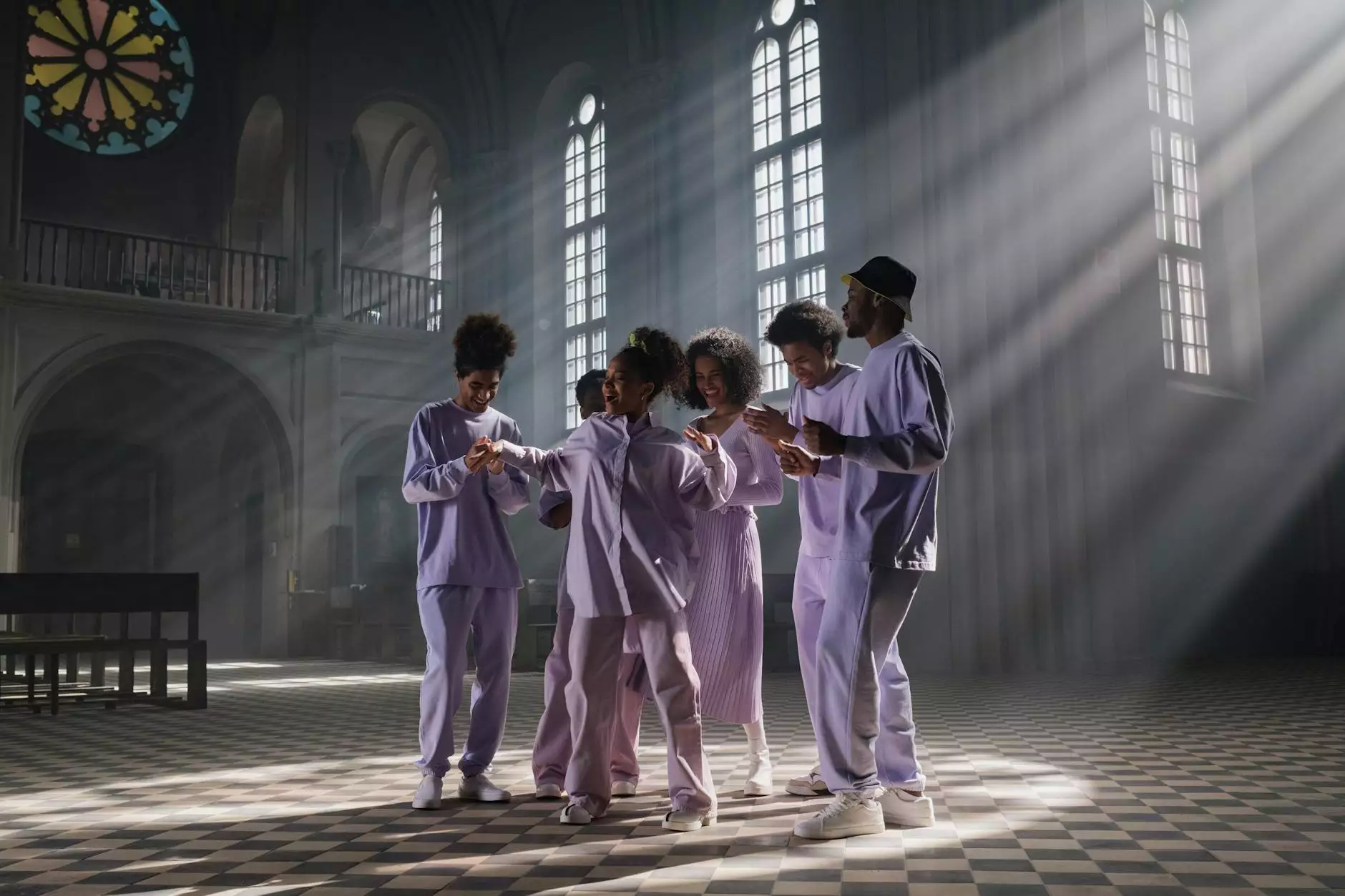The Vibrant Landscape of Churches in NYC

New York City, often described as the city that never sleeps, is renowned not only for its towering skyscrapers and bustling streets but also for its rich tapestry of diverse cultures and religions. Among the most prominent aspects of this cultural mélange are its churches, synagogues, and religious organizations. This article delves deeply into the essence of churches in NYC, encompassing their historical significance, community impact, and the spiritual nourishment they offer to countless individuals.
Understanding the Role of Churches in Urban Life
Churches have served as pivotal institutions throughout history, particularly in metropolitan areas like New York City. They are not merely places of worship; they are community centers that foster social connections, provide humanitarian aid, and support the spiritual lives of many. The dynamic role of church nyc extends beyond Sunday services, acting as pillars of hope, education, and charity.
A Diverse Array of Faiths
New York City is home to a multitude of faiths, and as a result, the variety of churches is astonishing. Each denomination contributes uniquely to the socio-cultural fabric of the city. Here are some of the major types of churches found in NYC:
- Roman Catholic Churches: With some of the oldest congregations in the city, these churches often serve large immigrant communities, offering mass in multiple languages.
- Protestant Churches: Encompassing a wide range of denominations, including Baptist, Methodist, and Episcopal, these churches are active in community service and outreach.
- Orthodox Churches: Representing both Greek and Russian traditions, these churches are known for their beautiful liturgies and strong community bonds.
- Evangelical Churches: These congregations are often characterized by their enthusiastic worship and active engagement in social issues.
- Synagogues: While primarily Jewish places of worship, they also often serve as community centers, offering services and support for both spiritual and social needs.
The Rich History of Churches in New York City
Historically, the development of churches in NYC can be traced back to the early days of the city. The first Anglican church was established in 1697, marking the starting point of organized religion in the region. As waves of immigrants arrived, they brought their traditions with them. This influx resulted in the establishment of various religious institutions that reflected the diverse cultural backgrounds of the city’s residents. For instance:
- The iconic St. Patrick's Cathedral, completed in 1878, exemplifies the Gothic Revival style and serves as a testament to the Catholic faith in NYC.
- The Abyssinian Baptist Church, founded in 1808, is one of the oldest African-American churches in the city and has played a significant role in social justice movements.
- Temple Emmanuel, established in 1845, showcases the Jewish community's contributions to the city and offers a welcoming space for spiritual and cultural expression.
Community Services and Outreach Programs
Beyond spiritual guidance, churches in NYC engage extensively in community service. They often run food banks, provide shelters for the homeless, and offer counseling services to those in need. This outreach aligns with the core values of compassion and service inherent in many religious teachings. Notable initiatives include:
Food Pantries and Meal Services
Many churches operate food pantries that help feed those facing food insecurity. For example, Saint Francis of Assisi Church in Manhattan provides meals to hundreds of hungry individuals each week.
Support for Homeless Individuals
Churches also act as safe havens for the homeless. The Bowery Mission, rooted in church service, offers meals, shelter, and rehabilitation programs for individuals experiencing homelessness.
Educational Programs
Churches like Trinity Church provide educational resources, including after-school programs and adult education classes, helping to uplift community members and enhance their skills.
Spiritual Growth and Healing Through Worship
The core of every church's mission is to provide a space for worship, reflection, and personal growth. Regular services, special ceremonies, and community events create an environment where individuals can connect with their faith and one another. Some aspects of worship include:
- Sermons: Powerful messages delivered by pastors or priests that inspire and educate congregants.
- Music Ministries: Choirs and musical groups enhance worship experiences with uplifting songs and hymns.
- Prayer Groups: Fellowship gatherings that allow community members to support each other through prayer and spiritual discussions.
The Modern Church Experience
In the digital age, many churches have adapted to new technologies to reach their congregations. Live streaming services, social media outreach, and online community groups are becoming common practices. This modernization ensures that the church remains relevant and accessible in a fast-paced world. Noteworthy trends include:
Online Worship Services
During events like the COVID-19 pandemic, many churches transitioned to online services, allowing members to participate from home. This shift opened new avenues for worship, attracting individuals who may not have otherwise attended.
Engagement Through Social Media
Churches now utilize platforms like Facebook, Instagram, and Twitter to connect with younger audiences. Inspirational quotes, event announcements, and rotating posts about community service help maintain engagement.
Challenges Faced by Churches Today
Despite their vital contributions to society, churches also face numerous challenges in contemporary NYC. As the city evolves, so do the needs and values of its inhabitants. Some pressing issues include:
- Declining Membership: Many traditional churches are experiencing dwindling numbers, particularly among younger generations, necessitating innovative outreach strategies.
- Financial Sustainability: Churches rely heavily on donations and offerings. Economic downturns can impact their ability to maintain facilities and support programs.
- Adapting to Urban Life: Churches must navigate the complexities of urban living, including zoning laws, community relations, and maintaining relevance amidst a secular society.
Finding Your Place in the NYC Church Community
For individuals seeking spiritual fulfillment, finding the right church community can greatly enhance one's life experience in NYC. Here are some tips for getting involved:
- Visit Different Churches: Attend services at various locations to find a community that aligns with your beliefs and values.
- Join Community Events: Participate in church events to connect with other members and learn more about the church’s mission and activities.
- Volunteer: Offering your time and skills to a church’s outreach programs is an excellent way to contribute while also creating bonds with fellow congregants.
Conclusion: The Enduring Spirit of NYC Churches
The landscape of church nyc is rich in history, diversity, and community. These institutions have adapted to the changing spiritual needs of New Yorkers while steadfastly serving as beacons of hope and compassion. As the city continues to evolve, churches will play a crucial role in fostering connections, nurturing faith, and providing support for those in need. Whether you are looking for a place to worship, seek assistance, or simply connect with others, the vibrant communities found within NYC's churches stand ready to welcome you.









